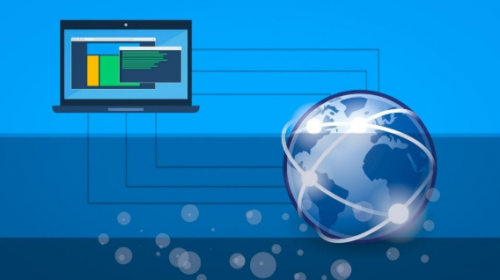In the War on Terror, Iran Is Kicking Our A**
With the accidental destruction of a Ukraine International Airlines passenger jet by an Iranian SA-15 missile near Tehran on Wednesday, fears of an imminent escalation of hostilities between the United States and Iran have largely subsided. Irans initial military response to the Jan. 3 targeted killing of Maj. Gen. Qassem Soleimani, a leading military strategist and commander of Irans elite Quds Force, was as limited and restrained as the targeted killing was bold and unexpected.
On Jan. 8, Iranian forces fired 16 ballistic missiles at two American-run military bases in Iraq, resulting in no deaths and limited damage. Iran telegraphed the missile launch, suggesting to experts on that countrys foreign and defense policies that Tehran wished to de-escalate tensions with the United States, at least in the short run. Foreign Minister Mohammad Javad Zarif described the strikes as a proportionate measure, taken in self-defense. And so they were. President Donald Trump, in his remarks after the missile attack, seemed to indicate a similar desire to cool things down.
Nonetheless, the odds are better than good that we will see more military action than negotiation between the two nations in the not-too-distant future. But the consensus view among military analysts is that the fighting to come is not likely to take the form of conventional military operations on land, sea, and air. Rather, the violence will almost certainly remain episodic, limited in scope, asymmetrical, and carried out on the ground largely by proxy and special forces rather than regular troops.
In other words, the 40-year twilight war between the two rival powers in the Middle East is likely to continue along the same lines as it has in the past. To understand why, one need only look at the Ayatollah Ali Khameneis grand strategy, and the remarkable success it has enjoyed since 9/11.
Just what is grand strategy? Renowned British military historian B.H. Liddell-Hart defined it in the 1930s as the process by which policymakers coordinate and direct all resources of a nation toward the attainment of the political object. Irans chief political object has been consistent since the Islamic Revolution of 1979: It seeks to become the dominant cultural and political power in a Middle East free from the baneful influences of Western culture, secularism, and the Great Satan, i.e., the United States.
The hardliners in Tehran see themselves as the guardians of the one true faith of Shiite Islam and believe they have a sacred obligation to rid the entire region of infidels so the True Faithand those who espouse and defend itmay flourish. Statements by Irans leaders about their overarching objectives exhibit a somewhat paranoid worldview, as is often the case with authoritarian and theocratic regimes. The Iranian Revolutionary Guards, the military force of about 125,000 that bears responsibility for defending the faith at home and executing Irans military responsibility for expeditionary operations abroad, issued this remarkable description of their mission not long ago:
Imperialism and global Zionism, with the help of governments and their henchmen, are everyday involved in plots against the spread and penetration of the Islamic revolution among the hearts of the people of Iran and the world… Therefore we can and must shoulder the global message of Islam. We have no recourse except the mobilization of all the faithful forces of the Islamic revolution and must, with the mobilization of forces in every region, strike fear into the hearts of our enemies so that the idea of invasion and destruction of our Islamic revolution will exit their minds. If our revolution does not have an internationalist and aggressive approach, the enemies of Islam will again enslave us culturally and politically.
To achieve its regional strategic objectives, Iran has made some highly unusual strategic choices. First off, it has eschewed conventional alliances with other nation states. It has opted to forego construction of an expensive conventional military force to deal with perceived threats from its chief adversariesthe United States and its allies in the Middle East, particularly Israel and Saudi Arabia. Instead, it has invested heavily in a formidable ballistic missile program, which serves as both sword and shield for the nation. It also has developed a sophisticated, cutting-edge cyber warfare capability to disrupt its adversaries economies and infrastructures, and harass its critics.
Irans most important vehicle for forwarding its regional objectives, though, and its most controversial, is a carefully cultivated network of as many as 200,000 militant foreign fighters that share its commitment to spreading the message and spirit of the Islamic Revolution, and ridding the region of Western influence.Unlike the deterrent value of ballistic missiles and the non-kinetic options afforded by cyber warfare, writes Afshon Ostovar, a widely published expert on Iran defense and security policy at the Naval Postgraduate School in California, militant clients are the only tool Iran has for extending its strategic footprint and directly countering its adversaries through armed force. For that reason, they have become the centerpiece of Iranian grand strategy, and an investment Tehran is not likely to abandon.
Iran has used this weapon effectively again and again since the 1980s to achieve its ends against the United States, Israel, and Saudi Arabia. In October 1983, Iranian-trained and -supported Hezbollah fighters blew up the Marine barracks in Beirut, killing 241 Marines. President Ronald Reagan opted to withdraw U.S. peacekeeping forces from the Lebanese Civil War rather than escalate the conflict there, or attack Iran. His failure to strike back is widely believed to have emboldened Iran to expand its support for anti-Western forces and projects in the region.
Iran and America have pursued directly conflicting objectives and strategies in the Middle East ever since, narrowly evading full-blown war on several occasions.
Over the last 10 years, the client militia network has become larger, better led, and much more effective in terms of forwarding Tehrans political and military ends. Brian Katz of the Center for Strategic and International Studies in Washington writes that these groups view Tehran and each other as battlefield partners, ideological allies and separate flanks in a common regional front. Moreover, in many cases, but especially with Hezbollah in Lebanon and with a cluster of Shiite groups in Iraq, the militias have become key players in national politics, and their leaders function, in effect, as political cadres who do Tehrans bidding.
Major General Soleimani made his considerable reputation by orchestrating the campaigns of these foreign militia clients in Lebanon, Saudi Arabia, Yemen, and Iraq. He has also been widely credited with helping the Assad regime in Syriaanother American enemyall but destroy rebel resistance as well. The Quds Force that he led, an elite part of the Revolutionary Guards that serves as a kind of cross between the American CIA and the Special Forces, has supported and trained fighters for the Taliban and al Qaeda in Pakistan and Afghanistan, but on a relatively small scale.
The work of the Quds Force under Soleimani has only further enhanced Irans reputation as one of the worlds foremost practitioners of irregular, or hybrid, warfare, in which conventional military operations take a back seat to proxy war, cyber operations, and political struggle.
It is clearly in Iraq that Irans militia clients have been most successful. According to a 2019 study by the prestigious British think tank the Institute for International Strategic Studies (IISS), within a few months of the American invasion of Iraq in 2003 the Quds Force was putting in place a subtle and effective hybrid warfare campaign aimed at frustrating Americas designs for building a pro-Western, democratic Iraq. By 2011, according to the IISS study, Irans influence over Baghdads political, security, and media architecture was significant Soleimani played an increasingly open role in Iraqs political process, resolving disputes among the Iranian [supported] militias, as well as seeking the election of Nouri al-Maliki as prime minister, who was considered [by Quds] to be sufficiently compliant that he would neither challenge Chia militia influence nor aggressively oppose Irans activities in Iraq.
In Iraq, Quds Force operatives gained invaluable experience both training and fighting with Arab militias against the Americans. Those militias were able to inflict damage on American targets without prompting a direct response against Iran.
Indeed, it has to be said, but seldom is: Iran has enjoyed far more strategic success in the Middle East since the beginning of the Global War on Terror than the United States, and those gains have come at a considerably lower cost in blood and money than what the American people have borne for their troubles. As the IISS Report concludes, Of all the players of the wars in Iraq and Syria, Iran has arguably come out of these campaigns better placed than any other, with the possible exception of Russia.
Of course, Iran has incurred significant costs for pursuing its geopolitical objectives with militant clients who often use terror as a weapon. Fears that Tehran wants to spread its revolutionary ideology have led its immediate neighbors to treat it as a pariah. Widespread international fear that Iran might use nuclear weapons as a shield for aggression led to a 2015 agreement restricting Tehrans nuclear development program, but after President Trump pulled out of the deal in 2018, it fell apart. Its status as a state that sponsors terrorism has led to the imposition of a host of stringent international economic sanctions that have prompted domestic unrest and discontent.
But the domestic strain and stress that have resulted from the sanctions do not appear to endanger the survival of the current regime, and there are no signs at all that Iran is seeking to wind down the political and military operations of its many client militias. It seems that a worthy objective of Americas strategy in the days ahead would be to find ways to check their influence by convincing Tehran that it will pay a higher price in the future for supporting such operations than it has in the past. More broadly, the United States needs to improve its hybrid warfare capabilities, and the sooner the better.The twilight war is likely to be with us for a long, long time.
Read more: https://www.thedailybeast.com/in-the-war-on-terror-iran-is-kicking-our-ass



